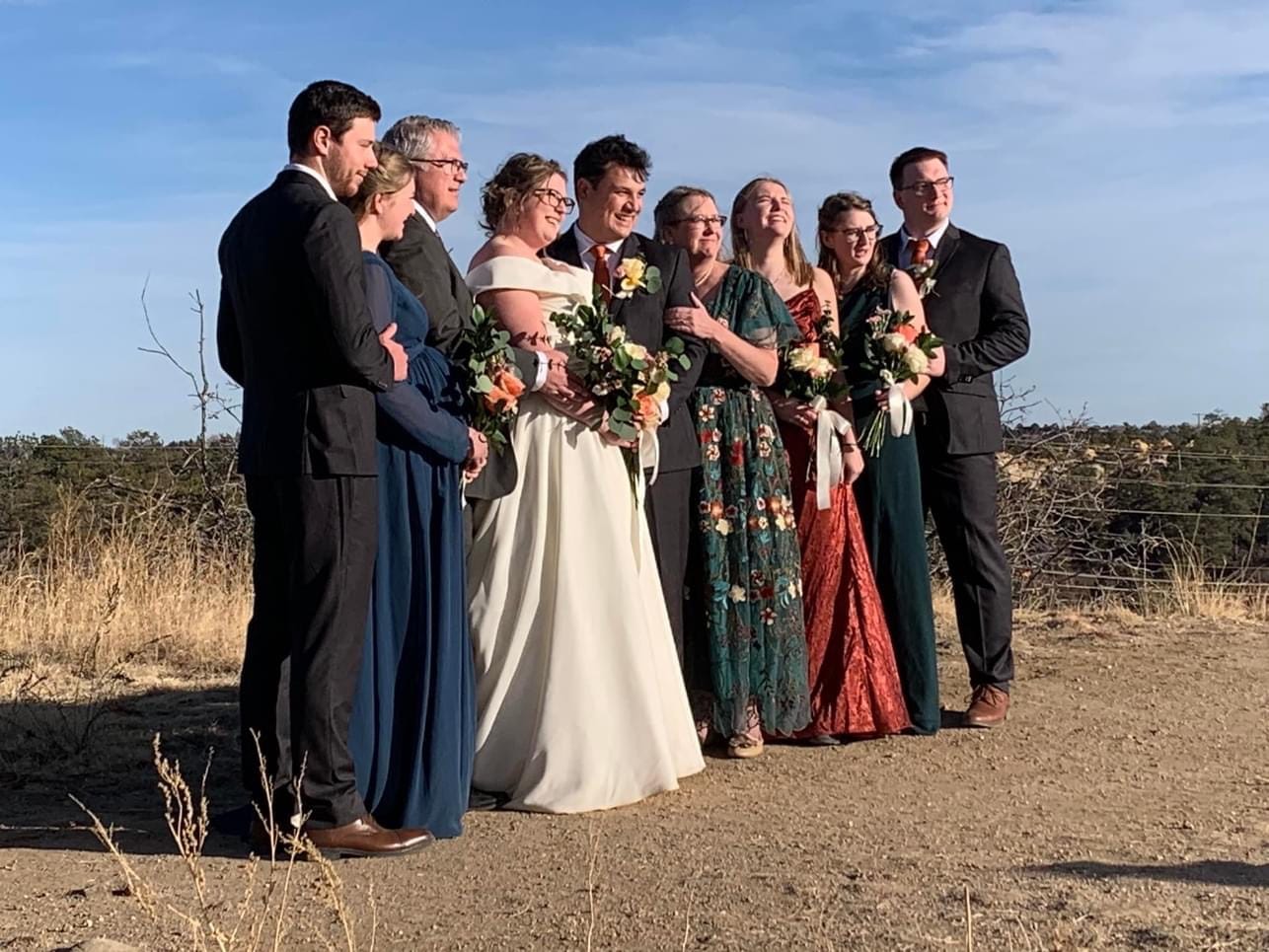Create the Contrast
Plus: Craig's "Best of 2023" Review
Dear Reader,
At the beginning of a new year, as so many look with hope for a fresh start, Megan and I do as well. Despite having celebrated the joy of a wedding in March and overcome (most of) the initial challenges of a cross-country move in July, it was a rough end to 2023 for our family:
Megan’s father, Mike, 79, suffered a heart attack just before Thanksgiving that required triple-bypass surgery, for which Megan (along with her sister, Michelle) spent multiple weeks in December with him in the hospital and rehab in Tulsa; thankfully, after a month in ICU, Mike is on the mend and looks to be home soon
Our daughter, Chloe, and son-in-law, Brian, were back and forth from Roanoke, VA, to Coeur d'Alene, ID, across several weeks to say goodbye to Brian’s mother, Holly, who died from toxic reactions to chemotherapy treatments for the cancer she had been diagnosed with this summer; she was 49
In contrast to these sadnesses, our third daughter, Katie, married Josiah Leong on New Year’s Day in Colorado Springs. It was a joyful weekend, and we were grateful to all be together as a family, meet and get to know Jo’s family, and reconnect with friends from the twelve years (1993-2005) we were on staff with The Navigators helping lead Eagle Lake and Glen Eyrie.
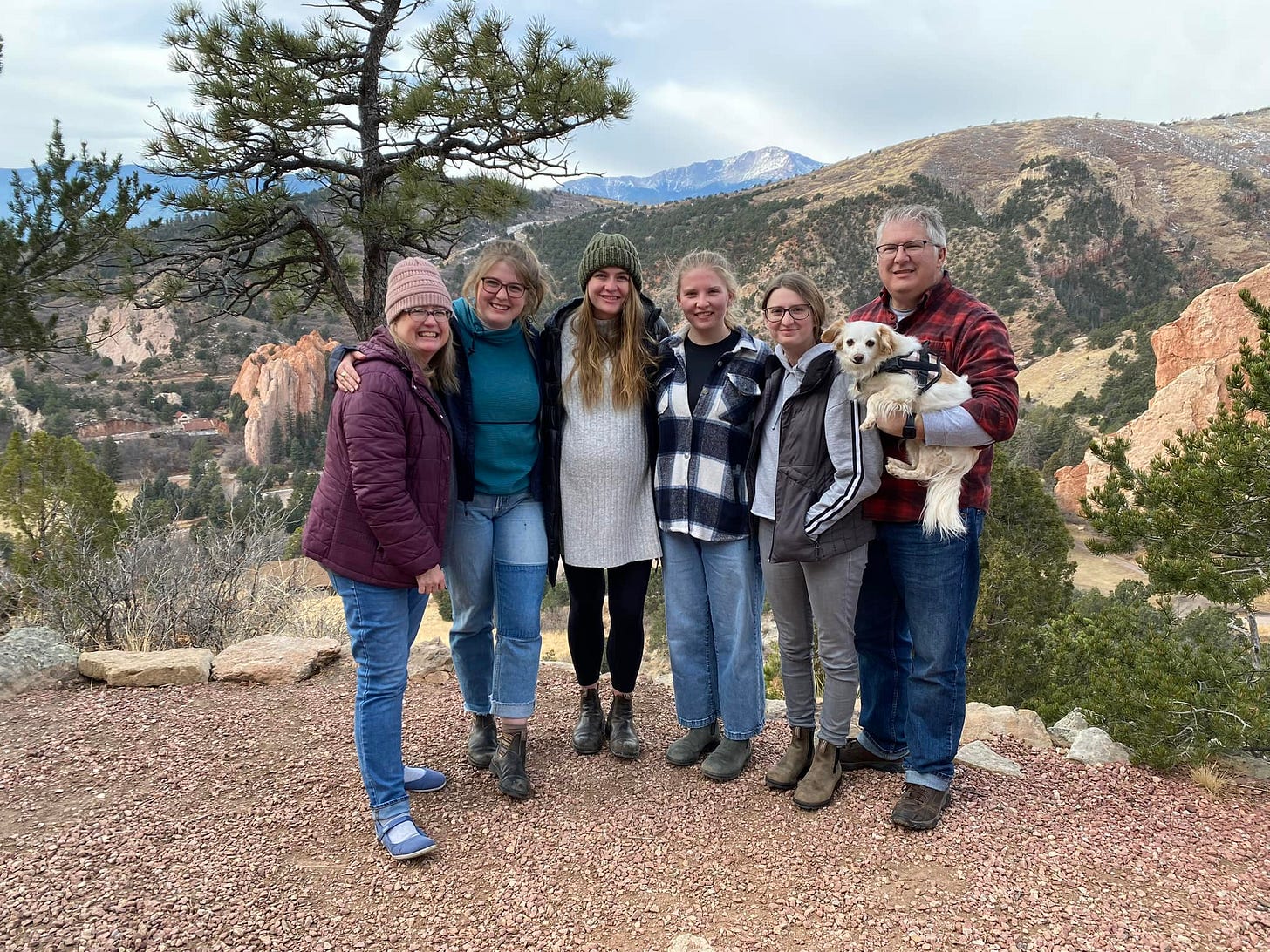
Now that we’re back in Springfield, the events of the past six weeks—good and bad, fun and sad—have already been layered into life, not as if they didn’t happen, but neither as if they just happened. After a 14-hour drive back on Tuesday, Megan was back in her 2nd grade classroom on Wednesday; after a day of digging out and catching up, I was at our 6:30 a.m. Exodus men’s prayer on Thursday.
Life goes on with its sick hearts and fresh starts…until it doesn’t. In between, we “choose you this day” whom we will serve. The disciples had a similar choice:
“After this many of his disciples turned back and no longer walked with him. So Jesus said to the twelve, ‘Do you want to go away as well?’ Simon Peter answered him, ‘Lord, to whom shall we go? You have the words of eternal life, and we have believed, and have come to know, that you are the Holy One of God.’” John 6:66-69
This is our prayer—that you, that we—would know Jesus, the Holy One of God, who has the words of eternal life, and believe and come to know Him in greater measure in 2024.
Thanks (as always) for reading Second Drafts,
Craig (for Megan)
PS: At the end of this month’s newsletter is a special two-question anonymous poll we’d love for you to take. Thanks for providing feedback for what you’d like from Second Drafts.
Create the Contrast
Having been on the road and coordinating a long wedding weekend, I didn’t spend a lot of time online between Christmas and New Year’s—that strange Bermuda Triangle of time when no one really knows what day it is and everyone is publishing their “Best of” lists for the concluding year. This wasn’t a bad thing by any means, but for better or worse, I did feel a little out of the cultural loop.
One of my musical and personal heroes, artist Charlie Peacock, apparently had a similar experience. He wrote about some of it in his newsletter on Wednesday:
“Then, like everyone else, I woke up to 2024. I’m hearing lots of hope and equal amounts fear and concern for what this year holds for us.
I’m leaning into this idea. It may be helpful to you too. I call it ‘Create the Contrast.’ A basic principle of art-making for life-making. It could be a project (a way of being) for all citizens with a mission of social healing—a daily commitment to awaken our imaginations to live and create in stark contrast to division, contempt, and dehumanization.”
“Create the contrast.” I like that. On the heels of our family’s third wedding (our second in 10 months), and only by God’s grace, here’s what “create the contrast” looked like for us: our girls weren’t allowed to date in high school, married young (19, 22, 21), married men, didn’t live with their fiances beforehand, and were taught that being a wife and (if God so enables) a mother are legitimate and honorable callings.
Truth be told, being a wife and mother may be two of the most counter-cultural things our girls will ever do, which is crazy to say out loud, but, well, here we are.
In 2024, how will you “create the contrast” between what God says in the Bible and what the world says everywhere else? What decisions will you need to make? What practices will you need to adopt? How willing are you to make the hard choices? Maybe just thinking about the “create the contrast” concept is a start (and that’s great), but rubber has to eventually meet the road to gain traction.
Five days into the new year, these are some of the things I’m personally thinking and praying about. I hope it helps and inspires you to do your own thinking and praying. In doing so, let us recall Paul’s words to the Colossians when he wrote:
“If then you have been raised with Christ, seek the things that are above, where Christ is, seated at the right hand of God. Set your minds on things that are above, not on things that are on earth.” Colossians 3:1-2
That’s the contrast; now, with Jesus’ help, create it in your life.
Craig’s “Best of 2023” Review
For what it’s worth…
Books
For multiple years, I used to keep and post lists of all the books I read. I stopped doing so in 2013 (you can read the beginnings of my rationale in this post from 2011), but I still like revisiting and recommending a few good reads each year to my fellow book lovers. So, in alphabetical order, here are nine books I especially enjoyed in 2023:
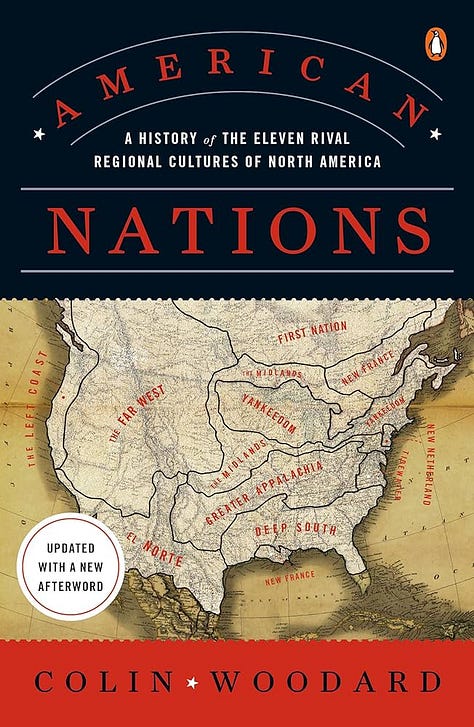
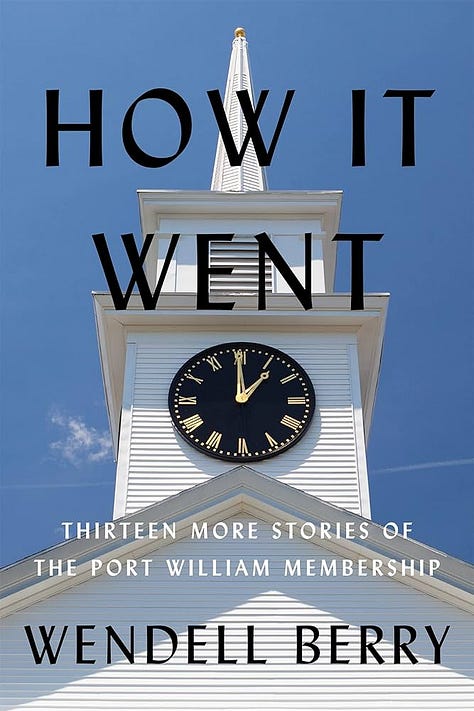
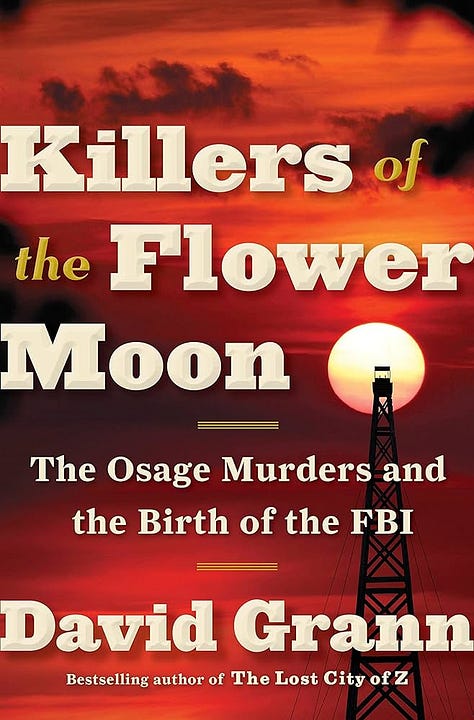
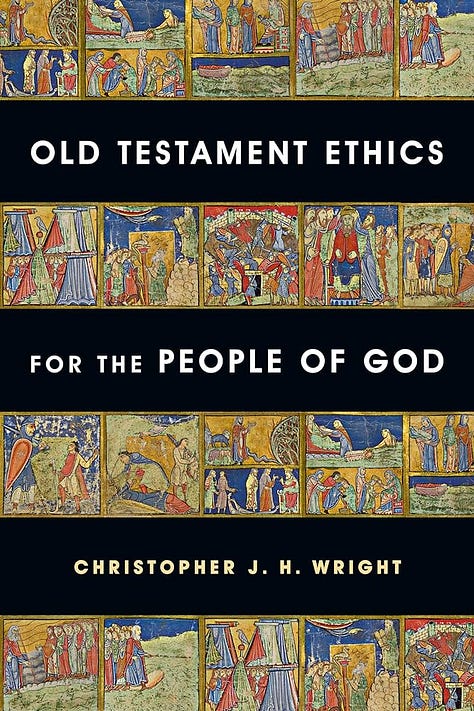
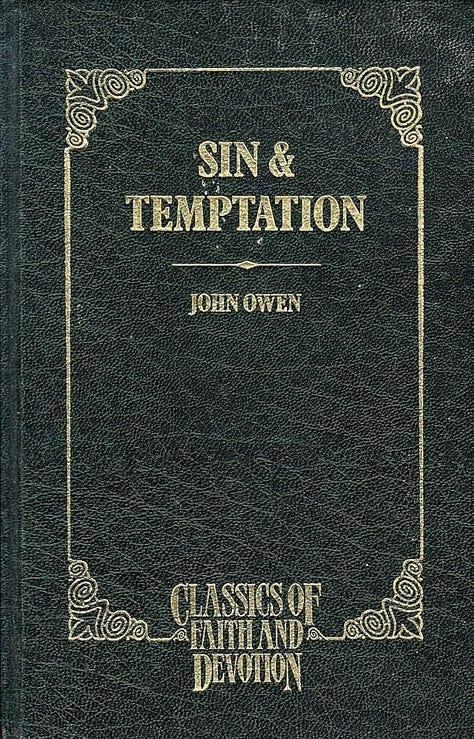
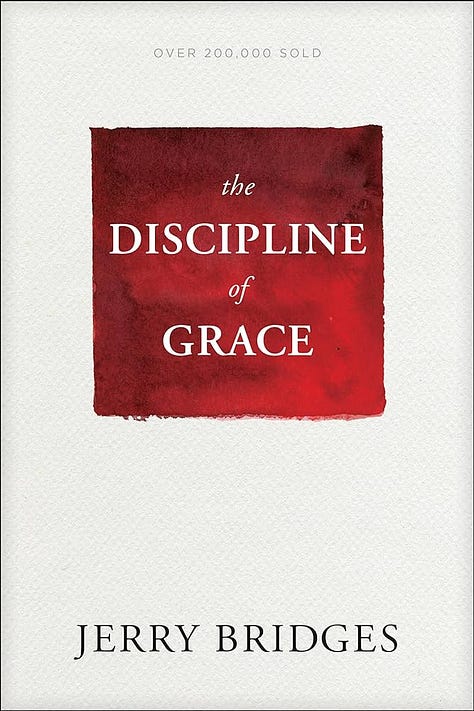
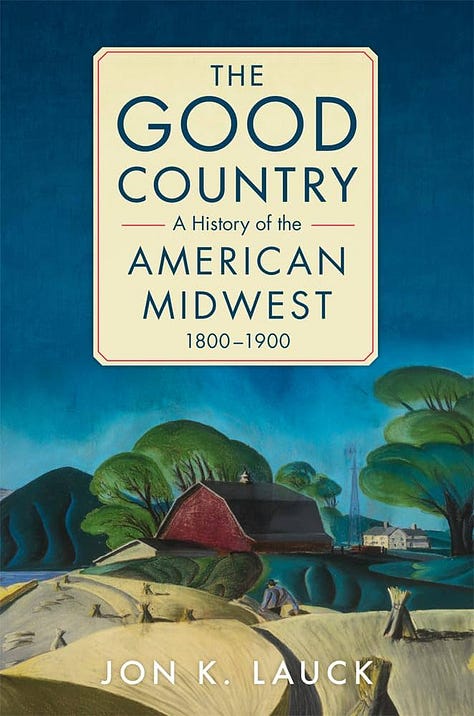
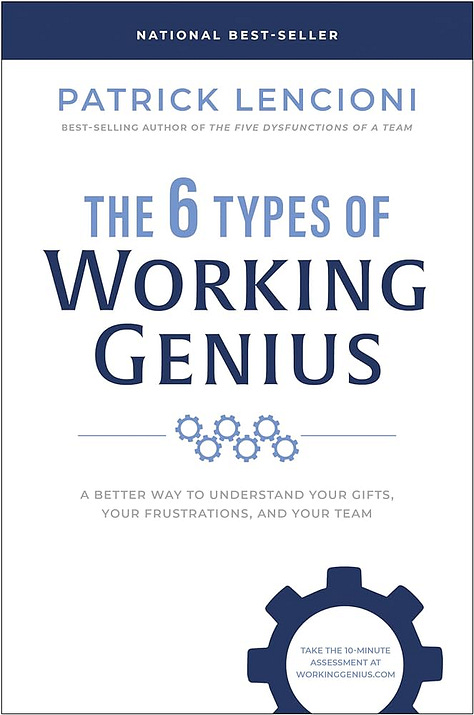
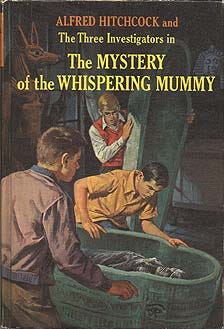
American Nations: A History of the Eleven Rival Regional Cultures of North America by Colin Woodard—Woodard’s contention is we can better understand our 50 United States by thinking of them more in terms of eleven different regional cultures. Without over-generalizing (too much), his argument was convincing.
How It Went by Wendell Berry—Another collection of Wendell tales of the tensions of resisting modern life’s attempt to take over Kentucky farming. This collection of thirteen new stories of Berry’s Port William “membership” spans the decades from World War II to present day as explored through the memory and imagination of one of the well-loved and central Berry characters, Andy Catlett.
Killers of the Flower Moon: The Osage Murders and the Birth of the FBI by David Grann—This 2017 book served as the inspiration for the movie (see review below). While the Osage murders were the cases that J. Edgar Hoover and company cut their teeth on, the real story is the deceit in the heart of men and the desperate need of its redemption. Hard to watch, but a lesson we need to learn…again.
Old Testament Ethics for the People of God by Christopher J.H. Wright—This was the key text I used for the Christian ethics symposium I taught this fall; incredibly readable and theologically solid. Studying it thoroughly (I passed out 80 pages of notes for the class), I was reminded anew of how much the Old Testament expresses God’s call to relationship and can enable our hearts to respond.
Sin and Temptation: The Challenge to Personal Godliness by John Owen—A 17th century Puritan, Owen’s treatise on indwelling sin, temptation, and mortification of sin remains a remarkable and relevant analysis of what goes on in our hearts, heads, and hands in choosing apart from God. Read this slowly (and with a friend).
The Discipline of Grace by Jerry Bridges—A reader of Puritan theologians, Bridges’ classic book on the relationship between our justification and sanctification in Christ made for a perfect companion text to Owen. The Discipline of Grace is a book every Christian should read to better understand God’s role in saving and leading us, and our response to his almighty sovereignty and loving providence.
The Good Country: A History of the American Midwest, 1800–1900 by Jon Lauck—A favorite book of the year. I especially appreciated the author’s recognition of the influence of Christianity in shaping the Midwest. While Lauck writes mainly in terms of “morality” as desired cause and effect of the nineteenth century’s religious energies, he doesn’t hide the fact that God was neither denigrated nor dismissed by most living in the middle of the country back in the day.
The Six Types of Working Genius by Patrick Lencioni—An author of multiple business leadership books, Lencioni’s parable approach can get a little long and cutesy, but the simplicity and applicability of his observations and conclusions are what make him effective for leaders of leaders. A good book for teams just starting out together (though there is value for more established groups as well).
The Three Investigators by various authors—This series is a fun throwback to my youth. While the original hardbacks are difficult to come by, the collection of all 44 hardback first editions (US or UK printings) is a new hobby and goal. Titles procured so far: #3 - The Mystery of the Whispering Mummy (two printings, U.S. and U.K.); #7 - The Mystery of the Fiery Eye; and #10 - The Mystery of the Moaning Cave.
Movies
While I probably watched more movies than I recall, most of them were via streaming than sitting in a theater and didn’t register quite as much (there is something to be said for the experience of the big screen). I never made it to see Christopher Nolan’s Oppenheimer, nor did I see Greta Gerwig’s Barbie (both of which I wanted to see), but I do hope to catch them at some point down the road.
The one I really wanted to see (and did) in the theater was the final installment of Indiana Jones, but it was a bit of a dud. Sadly, what Indy 5 lacked was Spielberg (Steven, that is). It wasn't a bad movie; it just wasn’t an Indiana Jones movie, as it lacked the essence of what Indy movies always were and were meant to be: fun.
Thankfully, not all was lost. Here are my best three cinematic experiences from 2023:
All the Light We Cannot See—Megan and I watched Netflix’s four-episode adaptation of Anthony Doerr’s novel about hope and bravery at the end of World War II. I had read the book (which is excellent and even better than the movie) when it came out several years ago over a Christmas break, but if you missed it this fall, allow me to suggest it as a worthy watch (despite Mark Ruffalo’s pseudo-French accent, but particularly for the performance of blind actress, Aria Mia Loberti, who plays Marie-Laure, and should have received a Golden Globe nomination in the Best Television Limited Series, Anthology Series, or Motion Picture Made for Television category).
Killers of the Flower Moon—Based on the 2017 non-fiction account by David Grann, Martin Scorsese’s adaptation of Killers of the Flower Moon (now streaming on Paramount) is the rare movie that is arguably better than the book (which I also read—see above). The film focuses on the inspiring real-life Osage characters and heartbreaking story lines emanating from Pawhuska, Oklahoma (75 minutes northwest of Tulsa—we purposely drove through it and the surrounding reservation on our way from seeing Megan’s family there to Colorado), where the 1920s travesties took place. One of director Martin Scorsese’s best (and that’s saying something).
Sound of Freedom—It wasn’t a perfect movie, but it was a powerful one, made all the more interesting by the attempted media sabotage surrounding it. Whether the attacks were from Hollywood, who tried to tie the film to QAnon as punishment for making an end run around the studio system, or Washington, D.C., who would have preferred the movie not keep child trafficking in the public eye, it’s a borderline miracle the film even made it to theaters. Actor Jim Caviezel (The Passion of the Christ, The Count of Monte Cristo) led a talented cast (especially the kids) in portraying the evils of child trafficking in the world, and non-Hollywood film making took a step forward in better scripting and overall production values.
Music
Maybe it’s because everything in my world has changed significantly in the past six months. Or I just don’t find (or know where to find) new music that interests me. Whatever, most of what I hear on pop radio these days is so non-melodic, as if musicians have just given up and given in to Count Basie’s doomsday proclamation that, mathematically speaking, the last original melody was written in 1955.
Whatever the reason for my lack, according to Spotify Wrapped, I listened to 703 different artists for 16,740 minutes, but those tended along the lines of the old(er) and familiar. Here’s a usual suspect:
I sent the graphic above to Mike so that he felt the love (he said he did) and am even now preparing a 6-week Bible study beginning in February on the person of Jesus utilizing many of Mike’s songs. So, I suppose there was a method to my madness. (Note: If anyone in Springfield is a fan of Mike’s music and would like to join me for the study, let me know.)
Andrew Lloyd Webber was my #2 artist (mostly Love Never Dies, I’m sure; I fell in love with that show driving around in a FedEx truck January through June), and I did listen to my #3 artist John Mellencamp’s summer release, Orpheus Descending, a decent amount and hope to take Megan to see him when he’s in town on March 23rd.
(Side note: I feel like I’ve heard Taylor Swift’s entire Midnights album at least a dozen times over via memes, movie and concert clips, and other various and sundry material propagated by her cult fans. For the record, I did proclaim on Facebook that I thought “Anti-Hero” was a great pop song, though from a Christian perspective, it leaves much to be desired in terms of repenting of staring directly at the sun but never in the mirror..but I digress.)
Unless I’m forgetting someone, I don’t have much to contribute to anyone’s music list. I hope to do better in 2024, especially after reading this article titled, “The Mental Health Benefits of Random Album Generators,” and how “listening to new music will change your life for the better.” There may still be hope for me yet.
Newsletters
No doubt, there’s plenty to read on the Internet. And, while there are also plenty of outlets I peruse, Substack’s platform for my favorite writers is easily the one I utilize most. Here are the five newsletters I get most excited about when they show up (one almost daily; one a couple times a week; the rest weekly) in my inbox:
Charlie Peacock—Chuck was one of the first artists I recall (going all the way back to the liner notes of his 1995 Everything That’s on My Mind album) who understood the potential power of the Web for audience connection as well as music distribution. His newsletter is just one of the more recent and myriad ways he seeks to keep in touch with—and touch more deeply—his fans. Fun insights into the world of music, creativity, and spirituality from one who walks the walk.
Rod Dreher’s Diary—I’ve read all his books, heard him speak, and even had dinner with Rod at a fancy Italian restaurant in Bozeman. The man is an absolute prolific writer whose output is sometimes as many as 5-6 dispatches a week (and we’re not talking a little paragraph or two each). Dreher has always been a “canary in the coal mine” type of thinker, which often gets him (mis-)labeled as a “slippery sloper,” but the guy has been right a lot more than he’s been wrong about cultural and societal matters, so I’m glad to give him the benefit of the doubt.
Seth Tower Hurd’s The Five—My friend Seth writes a twice-weekly newsletter that focuses on less-covered (but still important) news stories on Tuesdays, and pop culture happenings on Fridays. Seth knows his way around the Internet and makes good connections and helpful observations about what’s going on in the world (and why). In addition, he and I have enjoyed exchanging (and actually reading) multiple book recommendations from each other, and semi-frequently entertain ideas about working together on a project of some kind one day.
The Priory by Karen Swallow Prior—Another author I’ve actually met (though not all that long ago), I’ve resonated with Karen’s newsletter (now a year old) that she began after getting run out of a Christian university and later a conservative southern seminary for not playing along with the politics of both institutions. Warm and winsome, and one of a decreasingly few number of women in scholarship who holds to biblical views on things like traditional marriage and complementarianism, she is a good writer worth reading who is walking by faith.
The Square Inch by Brian Mattson—“A theologian, writer, and musician” according to his website, I read Dr. Mattson’s free email (or whatever part of it he might be making available) as he’s pretty succinct and cuts to the chase involving whatever social commentary he’s making. Though his writing is straightforward to the point of perhaps seeming abrasive (ahem), the logic, clarity, and groundedness of his thinking is top-shelf and a valuable asset for delving deeper into what’s behind or underneath the latest cultural occurrences and trends.
Podcasts
I have a love/hate relationship with podcasts. Having hosted my own, I know how much work they are to create and how ideas tend to build and transcend (even unintentionally) across episodes. This is why I feel like I’m missing something if I discover a podcast that’s been around for a while or get behind by an episode or two.
Though I think the medium is great on a variety of levels (especially for those who spend a lot of time driving or trying to multi-task), I still prefer reading and note taking for my best learning, consideration, and absorption of ideas. That said, here are four podcasts I enjoy and try to listen to regularly on walks or doing chores.




Music & Meaning—For those who want to get in early on a new podcast, my friend and award-winning music producer, Charlie Peacock, is putting out quite a well-written and creatively-produced offering that is only three episodes old. The podcast debut features the story behind Charlie’s signing of the band, Switchfoot, and is a fun and interesting apologetic for the cultural mandate of Genesis 1:27-28. (Side note: Charlie and his wife, Andi, have a new book coming out called Why Everything That Doesn't Matter, Matters So Much: The Way of Love in a World of Hurt. Megan and I are toying with the idea of a road trip to Nashville for their book signing launch on March 14.)
Old Gods of Appalachia—According to American Nations author Colin Woodard (see above), where I grew up in Pike County has strong Appalachian roots. This spring, fellow Pike Countian Seth Hurd, who turned me on to Woodard’s book, introduced me to a podcast called Old Gods of Appalachia, which I listened to some this summer. I’m only a few seasons in and have taken a break as the jury’s still out as to whether I really like it (the early episodes are well-written and performed, but teeter on being melodramatic), but if you're looking for a fictional podcast in which Wendell Berry meets The X-Files, this one may be for you.
Suspense—When I was a kid, I used to pay for a subscription to an old time radio show tape club. Each month, I’d get three cassette tapes in the mail with a mix of radio programs—comedies, dramas, etc.—from the 1940s, 50s, and 60s, two per cassette. My favorite dramatic show was called, Suspense—tightly told Twilight Zone-esque spoken performances—and I’ve since found 900+ episodes on Spotify, which make for semi-spooky evening walks through Washington Park.
Tangle—I’ve long given up on mainstream media (television in particular) for any kind of objective news reporting, which is why I appreciate Tangle. Each episode is well-written, seeks to accurately represent each all sides of an issue, and offers a good and reasonable take at the end. I also subscribe to their daily email, which along with their website, can feel like culture shock of (get this) reading factual (as opposed to conflagrated) headlines. (Note: If you’ve got some time, here’s a good 14-minute video on media bias they just put out.)
Take Our Poll
Since its newsletter inception in January of 2021, Second Drafts has gone through a variety of content and format transitions. Here’s your chance to answer three questions to help shape where it goes in 2024.
Have more specific feedback you’d like to share? We’d love to hear it. Email Craig.
Thanks for considering becoming part of our support team (all gifts tax-deductible).
Know someone interested in our ministry with Exodus Church in Springfield?


